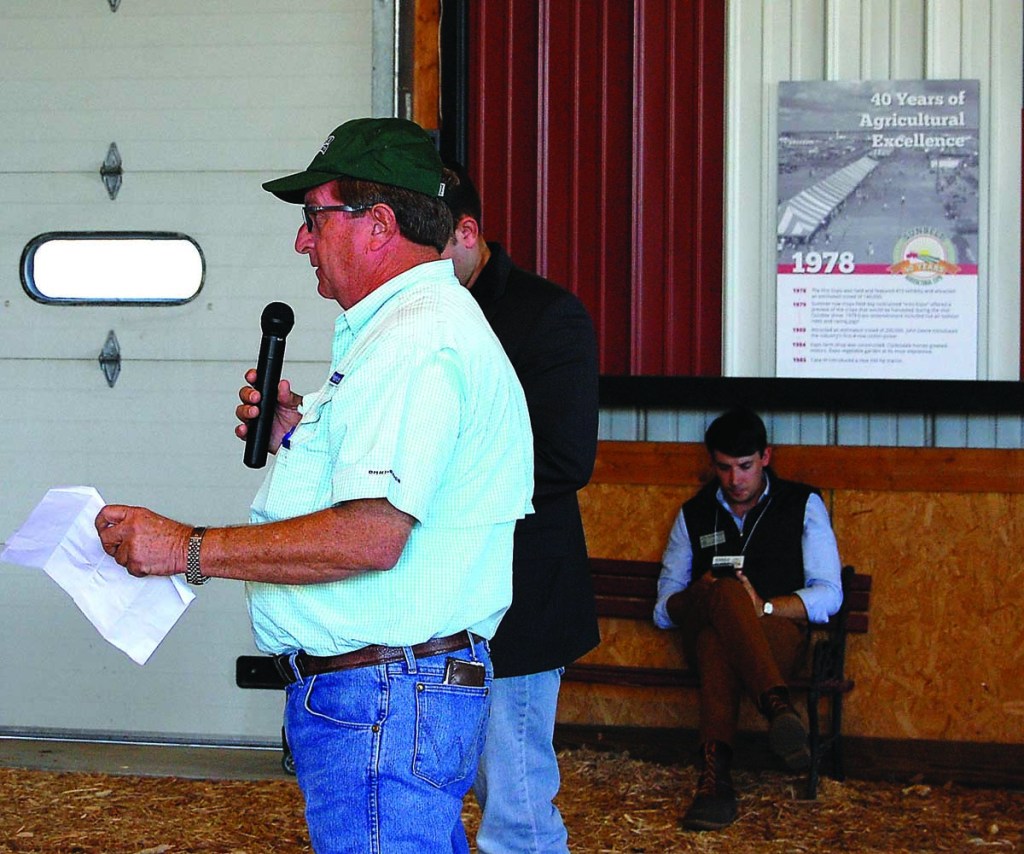EXPO: Farmers express concerns in Farm Bill listening session
Published 9:40 am Wednesday, October 18, 2017

- Ronnie Lee, a cotton grower who also is president of the National Cotton Council, speaks during a Tuesday afternoon forum with three members of Congress.
MOULTRIE, Ga. — Three U.S. congressmen who held a listening session on Tuesday at Sunbelt Agricultural Exposition heard that among farmers major concerns are labor, commodity prices, issues with crop insurance and wild hogs.
Republican Austin Scott of Tifton, whose 8th District includes Colquitt County, was joined by Rick Allen, R-Augusta, and Al Lawson, D-Fla., in a forum moderated by Georgia Agriculture Commissioner Gary Black. The three were in Moultrie to hear from farmers before beginning work on a new five-year farm bill either late this year or early in 2018, with a goal of completing the legislation by fall of that year.
“The problem of finding qualified labor is the top priority for me, and probably for every farmer,” said Jefferson County Jeb Barrow, who also is president of the Georgia Pecan Growers Association. “This is not about lowering labor costs. This is about someone showing up every day, sober, and you can (trust) putting him on a $50,000 (piece of equipment).”
If Congress could make improvements in the H2A program — which allows farmers to temporarily bring in foreign laborers when local ones are not available — it would be a big help, particularly to smaller-sized pecan operations, Barrow said.
Barrow also brought up the regulations relating to programs that help pecan growers recover after a weather event that damages trees and crop insurance.
“My insurance program last year would have been $990,000,” said Barrow, who declined to participate. “The payment in return, we would have received a $758,000 payment for (Tropical Storm) Irma.”
Cotton growers are struggling from the impacts of Irma, whose winds knocked mature cotton off the stalks and caused stalks to blow over and intertwine, said Richie Seaton, executive director of the Georgia Cotton Commission.
Another problem is low prices for cotton seed. Much of the time cotton growers can receive a rebate for the seed separated from the fiber at the gin that will cover the ginning costs and perhaps put a little money in their pocket.
“Farmers have to give up the rebate and have to pay for ginning this year,” Seaton said. “Many of the farmers here are just beginning to realize the extent of damage done by Irma.”
Growers also need a continued crop insurance program, he said.
Ronnie Lee, a cotton grower and president of the National Cotton Council, said that crop insurance should be more prominent in the next farm bill.
Cotton growers have had a rough five years, he said, and “the last three years total costs significantly exceeded total returns” to farmers.





